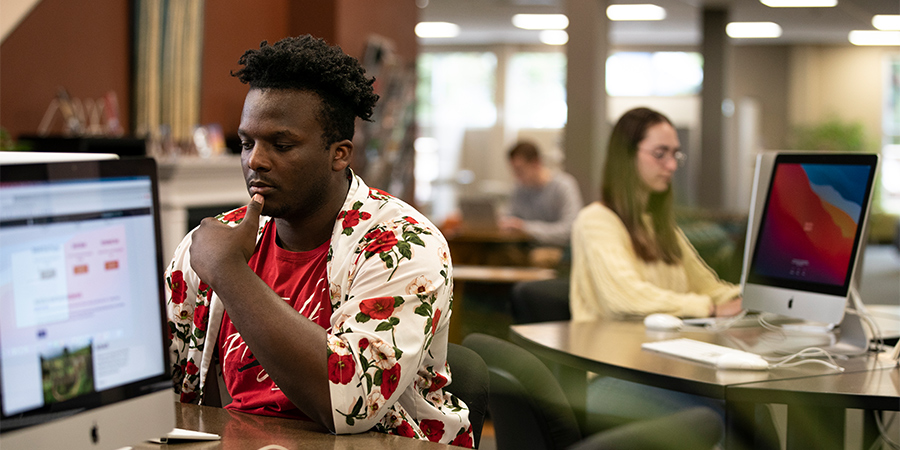Five Tips To Make the Most of Your Study Time
by Brooklyn Chillemi
It can be hard to prioritize studying with the busy world surrounding us — so when you sit down to get to work, it’s crucial to make the most of your time.
Let’s learn how to study well from start to finish, even when the world around us may feel chaotic.
#1 Organize Your Space
Whether your study space is at the library, your desk, or at a coffee shop, sit down and spread out your materials so they are all within reach. It’s best to choose an area that you associate solely with studying so you can build good studying habits at that location.
Also, make sure that the noise levels around you are something that you can work with efficiently. If you are studying with a friend, make sure you and that friend are both committed to studying that evening, even if that means you’re mostly working in silence side-by-side.
#2 Break Things Down in Your Calendar
While it’s helpful to use a calendar as a visual representation of your day, it can be easy to push aside your event titled “studying” from 3 to 6 p.m. and opt for something more exciting.
To avoid this, divide your time into chunks — instead of setting aside a three-hour event titled “studying,” create events within that timeframe that are specific to what you’re working on, so you feel committed to that time.
Plus, don’t forget to schedule breaks so you don’t feel overwhelmed. One way to balance the ratio between your breaks and work is through the Pomodoro technique, with 25-minute focus increments.
Additionally, if you download a calendar app on your phone, it will notify you before each event, giving you ample time to prepare for your next assignment or pack up for your next class. That way, your time isn’t spent thinking about the next item on your agenda, so you can focus on the work that needs to get done.
You can even link Canvas to your Google Calendar, so every due date in Canvas loads into your calendar automatically.
#3 Keep Your Phone Busy So You Don’t Use It
Now that you have organized your time, it helps to have a visual representation of your focus, especially if you’re struggling with a topic and feel like you’re not making progress.
With the Forest app, you set a timer for how long you’d like to study for, and the app plants a virtual sapling on the screen.
If you exit the app before the timer is complete, your tree withers. However, your sapling grows the more time that you spend focused, and by the end of your timer you can place the full-grown tree in your virtual garden.
#4 Put Away Those Tabs (It’s Not Time To Shop Online)
You’re doing great — your space is set up, your phone is busy, and now it’s time to actually study. Then you open your laptop, and far too many tabs are vying for your attention, none of which are related to what you’re supposed to be working on at the moment.
Let’s save all of those for later with the browser extension OneTab. When you click the funnel icon in the top right corner of your browser, all of your tabs will be condensed into a list, which you can revisit later.
#5 Stuck? Ask an Expert!
Sometimes, even if you’re focused, the content you’re exploring can be confusing. That’s OK — you’re learning! Take advantage of your professors’ office hours. They’re experts, and they’re here to help you.
Additionally, you can always reach out to the Academic Resource Center, or the ARC, which is located on the first floor of the Murdock Library. Or, if you’re a graduate student or studying remotely, the Portland Writing Center is available for asynchronous and synchronous appointments. To make an appointment for either location, use the Penji app.
If you’d like more tips on when and how to effectively study, Alice Ai, a career and academic planning coach at George Fox, shares advice on how to schedule yourself for success in the video below.





